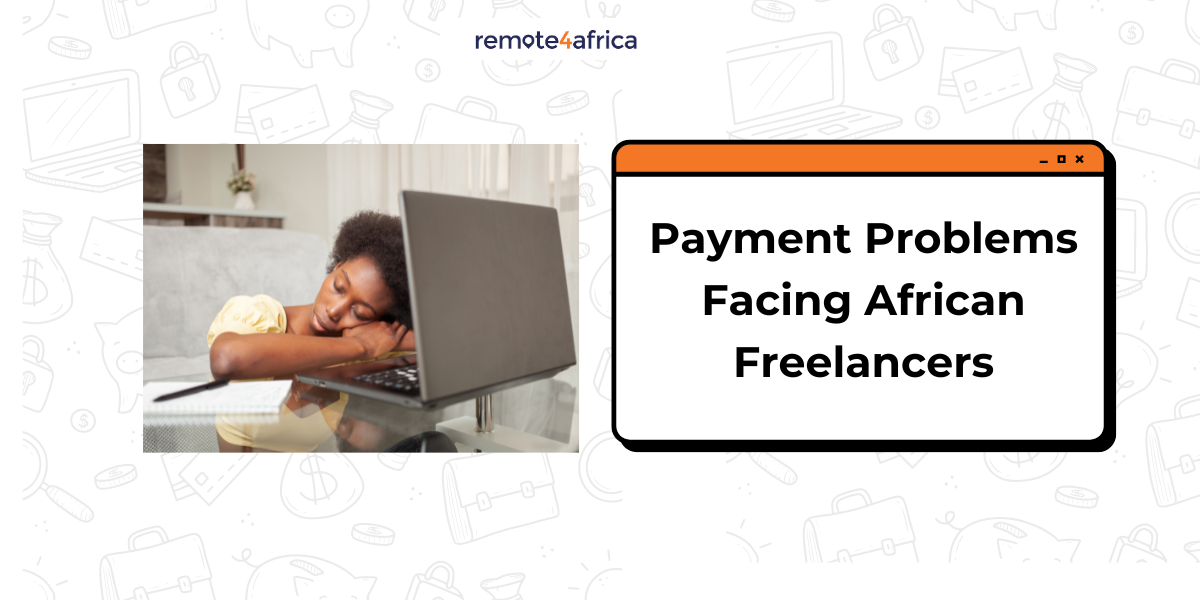Payment Problems Facing African Freelancers (and Ways to Mitigate them)
Explore the common payment problems faced by African freelancers and learn how to overcome these challenges. Discover solutions to ensure seamless transactions and secure payments.

Freelancing offers tremendous opportunities for individuals across the globe, including African freelancers. However, one of the most significant challenges faced by African freelancers is receiving payments from international clients. In this article, we will delve into the common payment problems faced by African freelancers and provide practical solutions to overcome these challenges.
Common Payment Problems Faced by African Freelancers
Limited Access to Payment Platforms
One of the most significant issues for African freelancers is the limited access to popular payment platforms like PayPal. Many countries in Africa do not have full access to PayPal services, making it difficult for freelancers to receive payments.
High Transaction Fees
Transaction fees can be prohibitively high for African freelancers. Payment platforms and banks often charge hefty fees for international transactions, reducing the net income freelancers receive for their work.
Currency Conversion Issues
Freelancers often face challenges with currency conversion. Converting foreign currency payments into local currency can result in significant losses due to unfavorable exchange rates and additional conversion fees.
Delayed Payments
Delayed payments are a common issue for freelancers globally, but the impact can be more pronounced for African freelancers. Delays in payment processing can disrupt cash flow and create financial instability.
Lack of Reliable Payment Methods
Many African countries lack reliable and efficient payment methods. This makes it difficult for freelancers to receive payments promptly and securely.
Fraud and Non-payment
Fraud and non-payment are significant risks in freelancing. African freelancers may encounter clients who refuse to pay for completed work or attempt to scam them.
Solutions to Overcome Payment Problems
Utilizing Multiple Payment Platforms
To overcome limited access to payment platforms, African freelancers can utilize multiple platforms. Payoneer, Skrill, and Wise are viable alternatives to PayPal, offering reliable services and access in many African countries.
Negotiating Payment Terms
Freelancers can negotiate payment terms with clients to minimize transaction fees. For instance, requesting larger lump-sum payments instead of multiple smaller transactions can reduce the number of fees incurred.
Choosing Favorable Currency Conversion Options
Using payment platforms like Wise, which offer competitive exchange rates and low conversion fees, can help freelancers maximize their earnings. It's crucial to compare rates and choose the best option available.
Setting Clear Payment Milestones
Establishing clear payment milestones in contracts can help ensure timely payments. Breaking projects into smaller, manageable parts with associated payments can reduce the risk of delayed or non-payment.
Leveraging Local Payment Solutions
Some local payment solutions (Paystack, Flutterwave etc) and mobile money services, like M-Pesa in Kenya, can offer reliable and efficient ways to receive payments. Freelancers should explore local options that might be more cost-effective and secure.
Using Secure Invoicing Tools
Professional invoicing tools like Invoicera, Invoicely, or Invoice Ninja can help freelancers create clear and detailed invoices, reducing the risk of payment disputes and delays.
Building Strong Client Relationships
Developing strong, trustworthy relationships with clients can reduce the risk of fraud and non-payment. Clear communication and mutual respect can go a long way in ensuring a smooth payment process.
